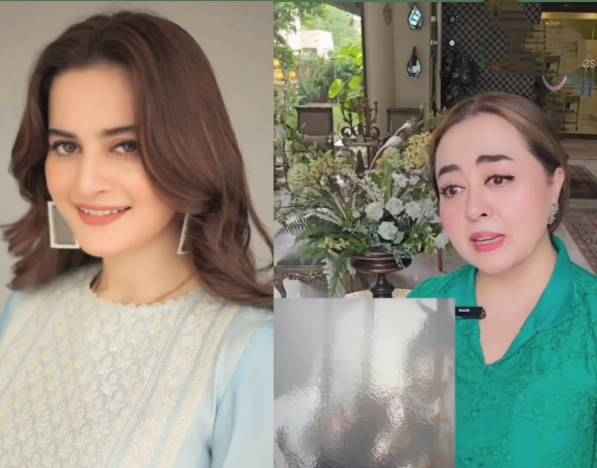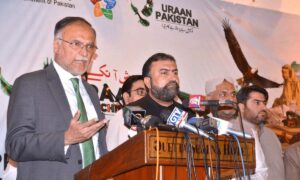It started with an Instagram story that sent ripples across Pakistan’s social media. Designer Maria B, known for her outspoken views, had posted a long message about what she claimed was an LGBTQ-themed party in Lahore. To her, it wasn’t just another gathering—it was a sign of something darker, a threat to values she believed were sacred.
In her story, Maria B’s words were sharp and filled with urgency. She warned that such events were not only encouraging immorality, but also working to undermine families, youth, and relationships. “These things,” she wrote, “are happening right under the authorities’ nose.” She even went as far as to connect it to international pressures, questioning if directives from global organizations were silently being pushed into Pakistani society.
Her post ignited a firestorm. Some applauded her for speaking up, praising her courage to defend cultural and religious values. Others criticized her, calling her words fear-mongering and divisive. The debate was already intense—until actress Aiman Khan stepped in.
Social Media Alleges Bollywood Song Copies Pakistani Drama Track
READ MORE
Aiman, one of Pakistan’s most followed celebrities, shared her own post in support of Maria B. She admitted feeling shocked and disturbed by the news. Her words were emotional: she asked her followers to seek forgiveness from God and described the situation as “alarming for our moral fabric.”
With that single post, the controversy grew louder. Supporters saw Aiman’s reaction as a validation of Maria B’s stance. Critics, however, saw it as another example of influential figures fueling fear.
But beyond the clash of opinions, the story revealed something bigger—how much power celebrities hold in shaping social conversations. What began as a single Instagram story turned into a nationwide debate about identity, values, and the future of cultural norms in Pakistan.









